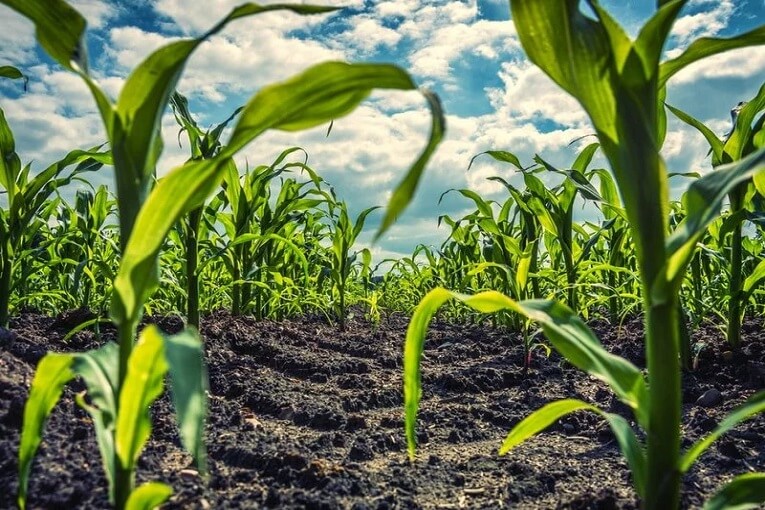Deva Armoogum: “Where are we with the objective of producing 50% organic by 2020?”
February 15, 2023 2023-02-28 5:52Deva Armoogum: “Where are we with the objective of producing 50% organic by 2020?”

Deva Armoogum: “Where are we with the objective of producing 50% organic by 2020?”
With a long career in public and private sector, Deva Armoogum, who is involved in permaculture, speaks about the potential of the agricultural sector for Mauritius.
In the last Budget, the government talked about reviving the import substitution industry through the agricultural sector, among others. There is talk of creating 100 farms under the “sheltered farming scheme” over the next two years. Do you think this ambition is achievable given the small share of the agricultural sector in the local economy to date?
In my opinion, it is precisely for this reason that the government wants to breathe new life into agriculture, although it is not clear whether this can be achieved in two years or longer. We have a big food security problem. We import 77% of our food products, according to the last Budget (in 2018). In addition, 96% of slaughtered cattle are imported. This means that we have a fairly high trade deficit. There is therefore a logic to launching an import substitution strategy. I think you can largely become self-sufficient in food. There are, as such, many food items on which we can be self-sufficient.
For example ?
Take the fruit. We must be able to be 100% self-sufficient in fruit. We already are, but we also import a lot, like oranges, when we can produce enough here. There are also mandarins, bergamot. News sites such as l’express published several articles to draw attention to the problem of pesticides on local products. But you should know that for imported products, it is worse. Apples, for example, from the time of flowering until harvest, are repeatedly sprayed with chemicals. In addition, imported fruits, when picked green, are sprayed with products to delay ripening before export. We can also be self-sufficient in vegetables, although we are affected by cyclones at the beginning of the year. Some local operators, like Médine, practice sustainable agriculture, which is a good thing. Producing locally and buying locally would also help reduce our carbon footprint. This is one of our goals in permaculture.
The government has also announced measures to attract young people to agriculture with the help of FAREI. However, according to employment figures for 2007-2017, employment in the service sector is rising while in the manufacturing and agricultural sectors it is declining year after year. Do you think that the proposed measures are sufficient to attract young people?
When we talk about the lack of manpower, we must remember that nearly 24% of young people are unemployed, including many graduates. Several of them have degrees in computer science, accounting and management, etc. No way for them to go and work the land. Even those who have studied agriculture do not necessarily want to cultivate the land! It’s a question of mentality. In order to attract young people to agriculture, a very strong campaign would be needed. The education system should also be reviewed to encourage young people to go into agriculture because it affects practically all economic sectors. The highlights of the Budget relating to employment, the environment, quality of life and inclusion, among others, are all linked to agriculture.
The risks linked to climate change are not mentioned in the Budget, even though Mauritius is already affected by them. What do you think? Climate change is a global phenomenon and it is the responsibility of all nations, including Mauritius, to work to reverse the situation. There is a strategic plan drawn up by the Ministry of Agriculture for the period 2016-20, which includes a whole chapter on climate change with a list of measures to mitigate its impact on the sector. Among, there is land use review. The area of forested areas is steadily shrinking. A trend that should be reversed by planting forests, including in urban areas, along roads, for example. This will help immensely in creating microclimates. Mauritius has about twenty of them. Besides oxygen production, trees also contribute to soil retention and water uptake.
In addition, we should also move towards organic farming. Unlike conventional agriculture where we feed the land with fertilizers, here we regenerate the land completely with organic matter. This helps store carbon in the earth, which helps reduce greenhouse gas emissions. It is also necessary to increase the diversity of plants. FAREI should invest in research and see how to integrate agriculture and the fight against climate change. All of these measures may not appear in the budget, but they are in the strategic plan.
On the other hand, it saddens me that program-based budgeting has been removed from the Budget (in 2018). Previously, each ministry implemented its strategy, which was spread over three to five years. And it is from these plans that we worked on the Budget. This made it possible to have performance indicators to know the progress of each strategy. The report from the Ministry of Agriculture is very good, but who does the follow-up? Where is the accountability in it? Are the public and parliament aware of this report? I don’t see why monitoring can’t be done efficiently, even in real time, with IT development.
What do you think of the development of organic farming on a large scale? If there is no mention in the last Budget, this type of culture was indeed mentioned in the 2016-17 Budget…
There are several incentives already in place, such as the biofarming promotion scheme. But I’m not too keen on large-scale organic farming because in the end it comes down to the same thing. This is industrial agriculture, which only replaces chemical inputs with organic inputs. These are expensive. Moreover, organic products are mainly aimed at those who have the means. In this Budget, the government has mentioned microfarming, sheltered farming and vertical gardens, among others. But first we need to know how all this will be set up! Will there be statistics to know how many people have joined? Does the government know how many families it is targeting through these projects? Who will follow up?
On the other hand, the Budget also makes provision for the creation of farms combining both agriculture and the production of renewable energy, particularly for small planters and cooperatives. Could this represent an opportunity for modernization for planters?
What is interesting here is the use of marginal land for the development of solar farms. But in doing so, nothing prevents you from being able to do something else under the solar panels, by building them higher. This would provide a good water catchment area. This can lead to the creation of basins for agricultural needs. Not to mention that under these solar panels, one can consider growing plants that can grow in the shade.
Solar energy can also be used to generate electricity to run pumps and control the sprinkler system, for example. This can contribute to a technological input into agriculture, something that could attract people. There are automated irrigation systems, water circulation with pre-mixed inputs, and measuring soil moisture, all of which solar-powered technology can help with.
It is precisely at this level that young people should be attracted because until now most of the schemes are aimed above all at traditional planters. However, it is necessary to ensure that young people are properly trained before starting, not necessarily with a degree in agriculture. Structured training is needed, not only with short Zero Budget farming courses, but real technician certificates. Vocational training can be developed by the MITD and the HRDC. Through these trainings young people can learn many things such as greenhouse cultivation, aquaponics or the use of biological pesticides. All this must be done through theoretical courses annexed to practice. I think that young people have to go through this and that the government should encourage them through schemes. The training can also be developed by the MITD in partnership with the FAREI over a period of six months.
How do you see the future of the agricultural sector in Mauritius?
The sector’s contribution to GDP has declined in recent years. But there is enormous potential to increase production capacity, to interest young people in getting started while offering healthy products to the population. Tourism also represents a good opportunity for the sector. There will undoubtedly be more and more demand for fresh produce. We are being asked to eat five fruits and vegetables a day and people are starting to do it. From there, there is also a demand for organic. Surplus production can then be exported.
It is clear that we cannot depend on agriculture to promote the economy, because we are oriented towards a service economy. But you have to see agriculture as a whole and see how it affects other sectors. Take the production of organic products. We can create our label. Our organic products can be marketed in restaurants and hotels. Tourists will know that they can find organic products there. Organic products also involve medicinal plants or essential oils, which can be used in spas and health centers. Hotels can encourage the surrounding community to plant organic and buy it. This will not only create an incentive to buy locally but also create jobs. One question remains: according to the strategic plan of the Ministry of Agriculture, the objective is for our local production to be 50% organic by 2020. Where are we?
Original Author: Shelby Emilien
Source: https://lexpress.mu/article/334236/deva-armoogum-ou-en-est-lobjectif-produire-bio-50-dici-2020
Search

